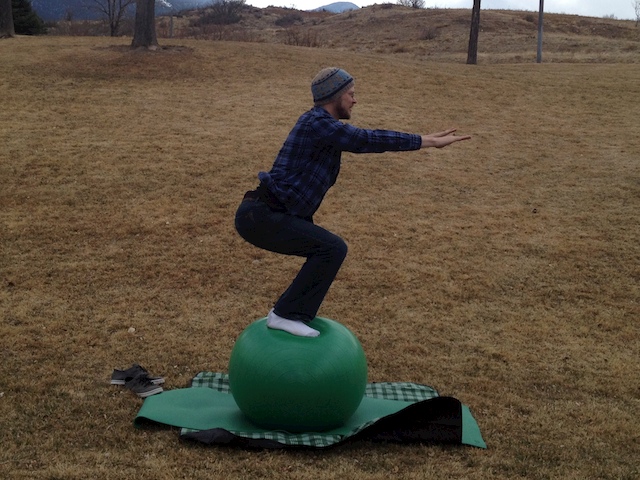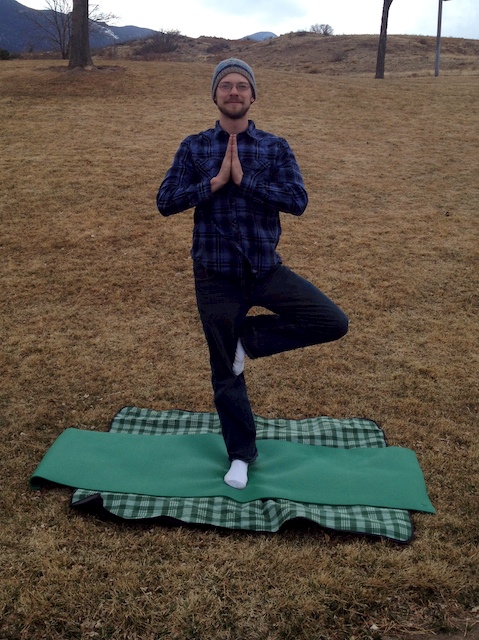So this is my first official blog post. Yay! I can think of no other topic more relevant or foundational in correcting many of the problems our society faces today.
 Most of the time when we read something about balance, it mostly has to do with making sure our lives are balanced, our activities are balanced, our thoughts are balanced, our relationships are balanced…. All these are all good things to do, no doubt. However none of these will be accomplished without first addressing the system that controls ALL functions of our body, the nervous system.
Most of the time when we read something about balance, it mostly has to do with making sure our lives are balanced, our activities are balanced, our thoughts are balanced, our relationships are balanced…. All these are all good things to do, no doubt. However none of these will be accomplished without first addressing the system that controls ALL functions of our body, the nervous system.
The more we practice our balance the more we continue to reinforce proper brain function as well as communication in our nervous system. As a child develops, the higher potions of their brain matures after and in direct relation to the ability to balance. Balance develops first! Connect the dots: keeping our balance strong will keep our coordination and brain function strong for as long as possible.
How to keep physical balance strong:
- Make it fun! Any chance that we have to walk, run, jump, bounce, or wiggle should be taken and done with joy and curiosity.
- Do more things bare foot. It is a work out for our feet. Our feet are really important for balance and posture of the whole body. Relying on arch support in shoes too often eliminates the need to use our foot muscles. As muscles go; use it or loose it.
- Sit less but if you have to sit make it a challenge. You can sit on a fit-ball, an inflatable cushion on your current chair, OR you could rearrange your work space to be able to stand rather than sit
- Do things with your eyes closed. When we practice balance with our eyes closed we are relying only on the information sent to our brain from our muscles, joints, and inner ear. If all of these are strong then we will never have to worry about falling or injuring ourselves in regular everyday activities.
- Pick up your toes. Keep all of your weight between your heels and the balls of your feet so that your toes are free to move.
 Test yourself; when you think about it while you are standing, wiggle your toes. If you have to shift your weight to do so then you know you are off balance.
Test yourself; when you think about it while you are standing, wiggle your toes. If you have to shift your weight to do so then you know you are off balance. - Practice relaxation. When one muscle tenses, the opposing muscle has to relax in order for you to move in any way. True balance and strength are 50% relaxation.
- Feed your nervous system and your muscles. Talk to a nutritionist about healthy fats and proteins that are vital for brain health. Eliminate excess sugar, artificial colors, artificial flavors and preservatives as these are toxic to the brain and nervous system. Some simple suggestions are raw nuts, avocados, coconut oil, olive oil, fresh organic free range meets and eggs, lentils, quinoa, and a big serving of raw organic vegetables on a regular basis.
- Stretch. Can you touch your ear to your shoulder without raising your shoulder? If you can’t then start stretching. Lateral bending is important for healthy spinal curves which are vital for balance and posture.
- Get other people involved! We are social creatures and we need human interaction. Get a massage, stretch with some friends, challenge your kids to a balance contest, or join a yoga class. Do something for your health that involves other people and you will be surprised at how fun it can be.
- Get adjusted by your chiropractor. Keeping all of your joints moving properly is an important part of brain health, balance, and posture.
Much Love!
Dr. Tad
What are your thoughts? How do you practice balance? Leave a comment – I’d love to hear from you!
